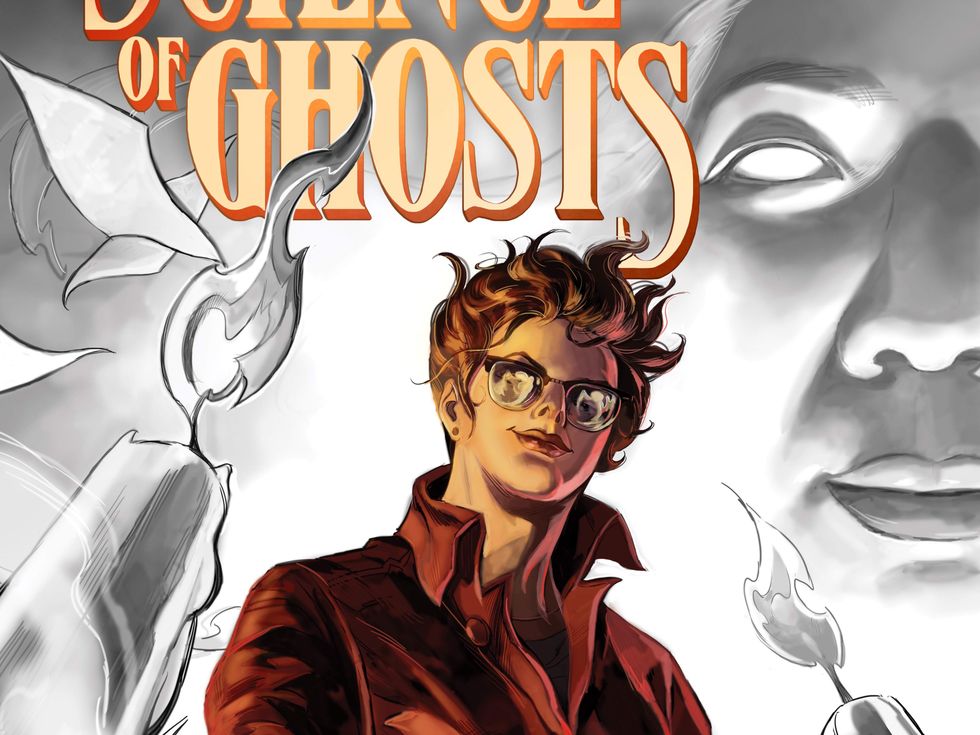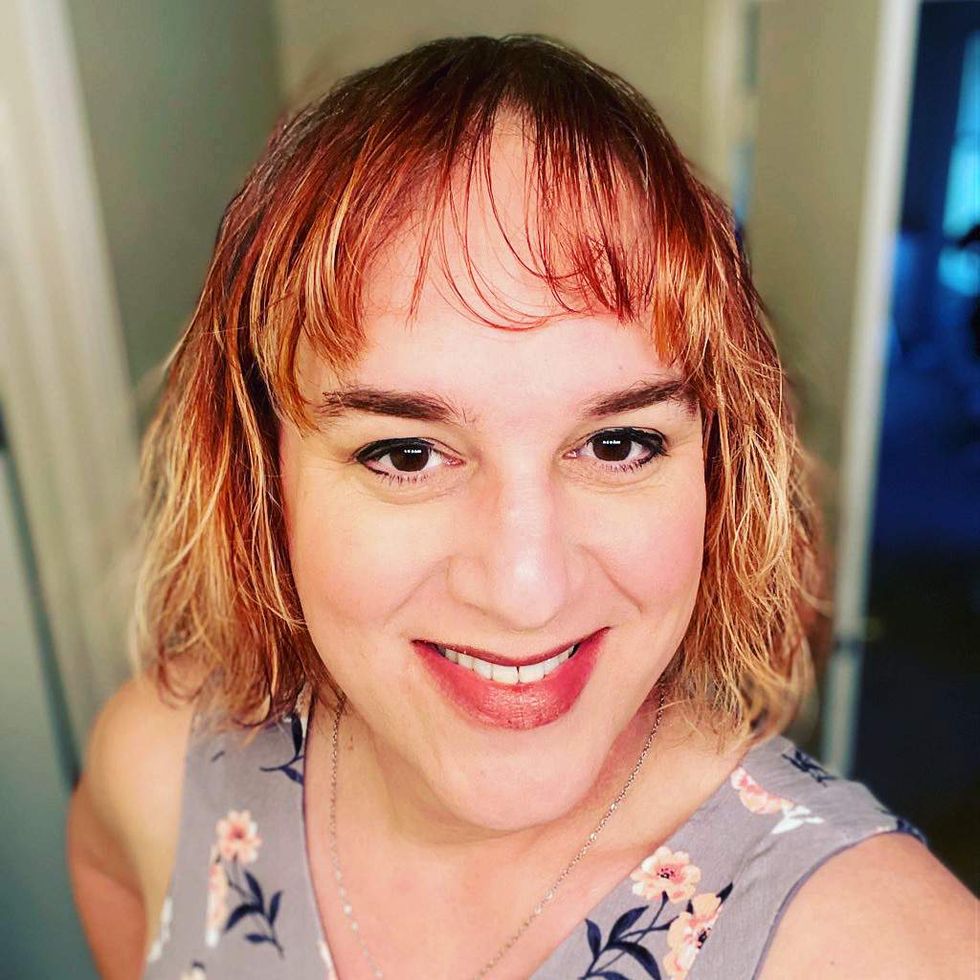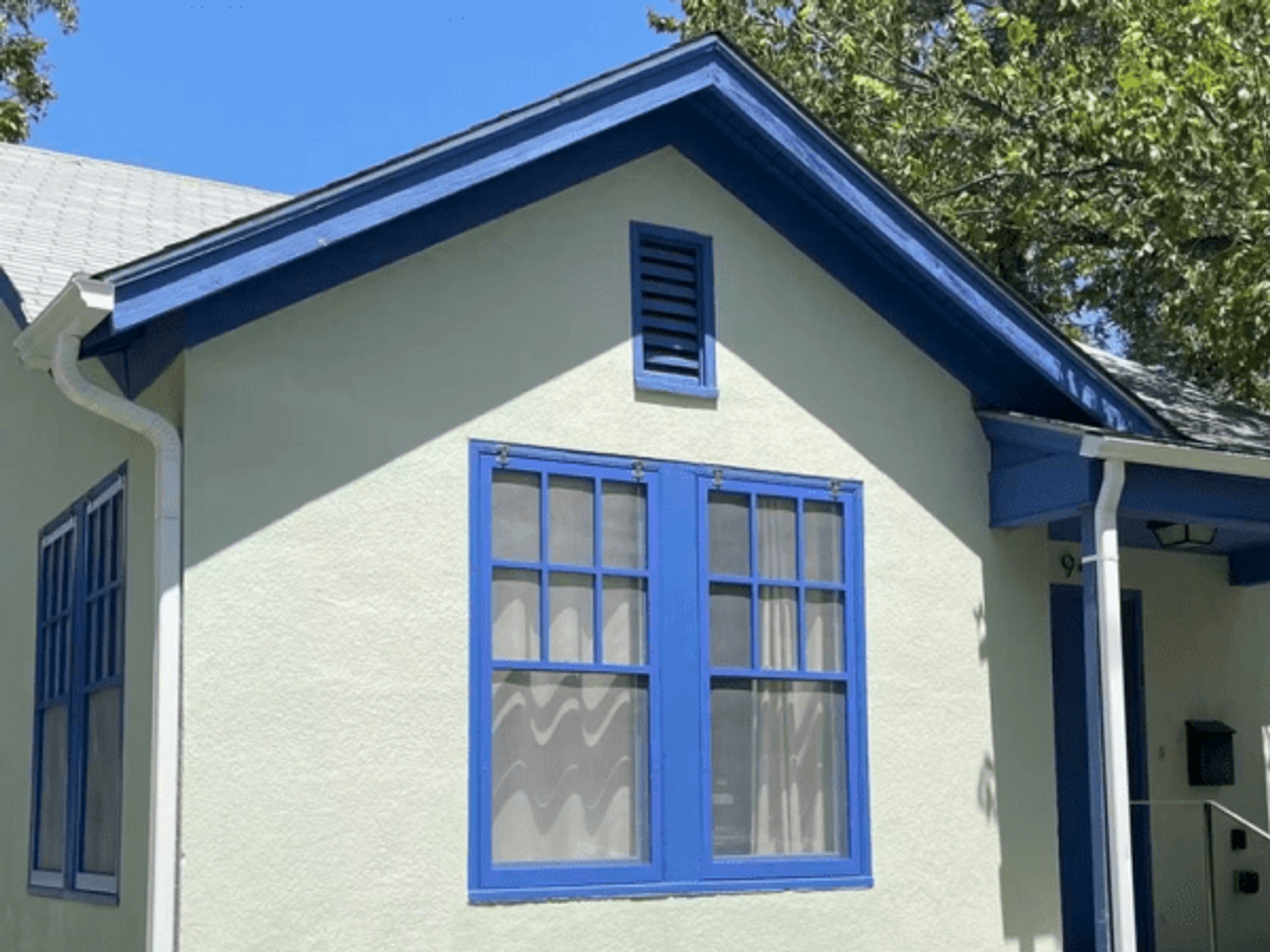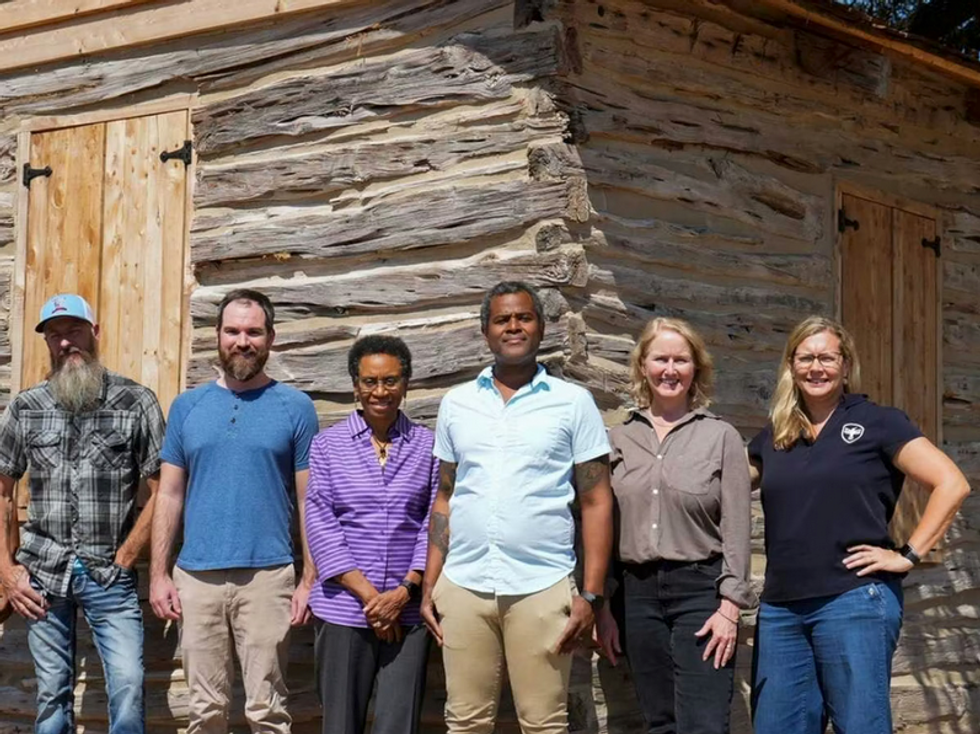Paranormal Pictures
Austin-based Marvel Comics author weaves unique story of trans ghost researcher
Austinites looking for a unique new read can make a stop here: An accomplished graphic novelist has embarked on a new project about transness and the afterlife.
Local writer Lilah Sturges released her new comic book, The Science of Ghosts, in mid-June through Legendary Comics. Sturges, known for her work on titles such as Lumberjanes and Dune: The Official Movie Graphic Novel, brings her experience and unique perspective to this new paranormal project.
Sturges has built a career writing for major publishers such as Vertigo/DC Comics, Marvel, and IDW. She is also recognized for her #TransPizza initiative, which used her Twitter platform to provide free food to trans individuals, earning her a spot in the Austin Chronicle’s Best of Austin in 2019.
Sturges' new book, The Science of Ghosts follows a transgender parapsychologist, as she explores the afterlife while dealing with personal challenges. Joy's journey includes her first post-transition relationship, a contentious relationship with an ex-wife, and clues to a long-forgotten murder.
In an interview with CultureMap, Sturges shares insight about her writing process, her comic beginnings, and the hope that The Science of Ghosts connects not only with queer readers, but all readers.
CultureMap: What initially sparked your interest in the world of comics?
Lilah Sturges: "I didn't grow up reading or caring about comics. It wasn't until I was in college [when] I met my friend Chris Roberson, who also writes and reads comics for adult readers. And this would be stuff like Neil Gaiman's Sandman, Grant Morrison's Doom Patrol; [I realized] this is a medium where you can really do anything! You can do all kinds of cool stuff, and it felt really edgy and smart.
[Later] I joined a group with a guy named Bill Willingham, and he started to write a book called Fables that got very, very, popular. I got to write a spin off of that book with him, and then it was off to the races from there. It's interesting because that was all before I transitioned. I'm a trans woman. Since I've transitioned, I've had a very different career in comics, coming back as a queer woman. The people that I work with are different. The stories that I write are different, and so is my audience. So it's like having a whole new career. It's really weird, and interesting, and great."
CM: Can you talk about how your background in music plays a role in your work in comics?
LS: "I’ve always been a creative person. I think there's different things [inside you] that want to be music, and there are different things that want to be stories. Who knows how it all works? For me, it's really important to be able to express that, whatever that is. I get it out in whatever form it takes. For a long time, my goal was to be like a rock star. I love to work musicality into my books, and I have this dream of doing a musical graphic novel. It's a thing that I've been trying to do for, like, three years now.”
CM: Have any of your favorite graphic novels or comic book series left a mark on your work?
LS: “Wow, that's difficult, because I don't think that way in terms of what comes out the other side. I know that a lot of Neil Gaiman is in there, just because he was my first love in comic books. And I know that there's a lot of mystery novels in there and detective novels. I really love Michael Connelly, which is probably not that cool. Something that I have loved forever are stories about the paranormal. When I grew up in the 70s there were stories about spontaneous human combustion, UFOs, and ghost hunters. And that is all part of what becomes The Science of Ghosts.
[I also want] there to be more queer fiction that has queer and trans characters doing things that aren’t just them being queer and trans. I want a woman who is a trans woman, and I want her to be the star of the show. And I want her to be this paranormal researcher. And that's what the story is about. Just like if you [had] any other kind of marginalized experience, [it’s] going to color how you see the world.That is a big part of what's going on behind the scenes in The Science of Ghosts.”
CM: What were some of the questions you were asking yourself when you were writing The Science of Ghosts? What were the questions you were maybe trying to get answered in writing this?
LS: “I think one of the big questions for me as a writer or as a creative person is, what is a ghost? Metaphorically, because I feel like there's something very deep about the idea of ghosts. Everybody feels a certain way about ghosts. Nobody is neutral on ghosts. You believe in them; You don't believe in them. That concern about ghosts says something about people, right?I spent a lot of time working out what, to me, a ghost is, and you can find the answer to that in the book. But I have an interpretation, and that made for a very powerful story.”
CM: How did your experience of writing for titles like Lumberjanes and Jack of Fables influence your approach to this new graphic novel?
LS: “Every comic I've ever written has taught me something about writing comics, no matter what it was, and when you're writing a graphic novel, you really need a set of skills. Writing comics has its own set of problems that need to be solved whenever you're writing. How is the story being paced? How is the character being developed? How much attention is being paid to this? Every comic that I've written up till now has kind of helped me understand the best way to approach all these different writing concessions. When I get to something like The Science of Ghosts, which is very deep and personal, I'm able to tell that story because I have those skills.”
CM: How do you hope The Science of Ghosts will leave readers feeling, or is there anything you hope it'll leave readers thinking about?
LS: “I hope it does two separate things. For trans readers, and just queer readers in general, I want them to go, ‘yes’. I want them to read this book and see themselves, and see that [they] can be the hero of the murder mystery too. The other thing is I want people to see trans people are actually real people. These are real people, and it takes experience and communication and back-and-forth for us to understand that yes, everyone else is a real, actual living, breathing person and not just this collection of qualities. We're all individuals, and we're not the same. In The Science of Ghosts, [Joy] is a messy bitch and she's got problems and she doesn't always do the right thing but she's trying. She's trying her best.”
Book cover courtesy of Legendary Comics
Local writer Lilah Sturges released her new comic book, The Science of Ghosts, in mid-June through Legendary Comics.


Readers can find copies of The Science of Ghosts via Simon & Schuster and other book retailers. More information about Lilah Sturges and her other works is available at lilahsturges.com. This Q&A has been edited for brevity.

 The Neill-Cochran House Museum's mid-19th-century slave quarters received Planning and Historic Designation grant support for restoration and historical interpretation.Photo courtesy of Preservation Austin
The Neill-Cochran House Museum's mid-19th-century slave quarters received Planning and Historic Designation grant support for restoration and historical interpretation.Photo courtesy of Preservation Austin Built around 1863, the Henry G. Madison cabin in Rosewood Park received Bricks and Mortar grant support for preservation planning work.Photo courtesy of Preservation Austin
Built around 1863, the Henry G. Madison cabin in Rosewood Park received Bricks and Mortar grant support for preservation planning work.Photo courtesy of Preservation Austin